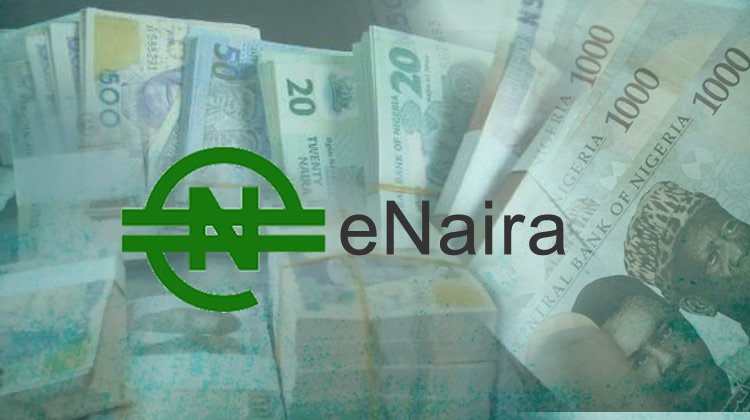It is not a secret that cryptos could be the future of the global financial sector. Regulating the ever-growing virtual currencies industry has necessitated the creation of national digital currencies, which are centralized under central banks. Countries like China have moved into speed to establish the Central Bank Digital Currencies (CBDC).
Enter eNaira
On October 25, Nigeria launched the eNaira, becoming the first African country to establish a CBDC. The cryptocurrency was unveiled in the statehouse in Abuja by president Muhamed Buhari.
The launch comes months after the central bank prohibited banks from handling crypto-related transactions. After launch, the eNaira received 2.5 million daily visits. Over 2 000 customers and 33 banks jumped on board, minting $1.2 million. This news comes when Bitcoin, Ethereum, Loopring and other coins are reaching new all time highs. Given dozens of analyst predictions, it, however, seems like we can expect a small dip before Christmas as Bitcoin, Ethereum and Loopring are predicted to decrease in value during this time period.
Speaking at the event, Central Bank Governor Godwin Emefiele clarified that the e-Naira is a legal tender and is equal to physical naira. This means one naira will be exchanged for one eNaira. He said they had laid the necessary requirements to ensure the digital currency thrives as a legal tender and facilitates payments. This explains its theme, “the same Naira more possibilities”.
A Plethora of Benefits
Unlike conventional cryptocurrencies such as Bitcoin, e-naira is a national currency that will enhance the country’s monetary policy. It will go a long way to enhance financial inclusion. Besides boosting the financial inclusion of the Nigerians, the government expects the digital currency to be a store of value for the weakening Naira.
According to the president, digital currency will make remittances cheaper, more secure, and faster. Nigeria remitted $17 billion in 2020. In addition, it would shift more local businesses from informal to formal hence expanding the tax bracket. Regarding economic growth, the eNaira could increase the GDP by $29 billion.
Digital currencies are not only faster but also cheaper. It will enable the government to send welfare programs payments to citizens directly without going through third parties.
In general, the digital version of the Naira will ensure timely payments and form the backbone of electronic payment in the country.
The digital currency will go a long way in enabling transactions monitoring, hence preventing naira devaluation and curbing illegal trades and inflations. Enaira is based on the blockchain open ledger eliminating fraud, and Blockchain tech is impossible to counterfeit or duplicate.
Lastly, eNaira will reduce the high cost of printing physical currencies. Despite the massive benefits, tech-savviness and penetration could pose initial challenges. Another challenge is that eNaira will be centralized and controlled by the CBN, which defeats the main aim of cryptocurrency decentralization.
There have been concerns about the sustainability and scalability of e-Nara. The good news is that the president has put these issues to rest. eNaira was developed in partnership with several agencies and ministries, with Bitt incorporation as the technical adviser. The whole process involved running numerous tests to ensure the digital currency’s scalability, safety, and robustness.
Nigeria is now among the countries that have rolled out national digital currencies in the world. Others are the Eastern Caribbean and Bahamas. China also launched a pilot of its digital renminbi earlier this year. More countries in Africa and worldwide are also testing national digital currencies to promote faster and cheaper transactions while maintaining control of their monetary systems. The leading economy in Africa – South Africa is currently in the process to test ‘digital currencies’, what will be the findings of FSCA is currently unknown. However, currently this regulatory body is the most established financial institution in the whole Africa and any entity or South African broker that wants to onboard South African citizens needs to have the FSCA license.
Access to eNaira Made Easy
To use eNaira, you should have an eNaira wallet. Currently, there is only one version of the government-owned Speed wallet, and this requires downloading the eNaira app and completing the registration process. After creating the wallet, you can transfer money from your credit cards or bank account and send and receive digital currency payments. However, there will be several tiers of the wallet with varying identification requirements depending on whether the user has a bank account and the amount of the transactions.
eNaira will serve four transaction levels: financial transactions, merchant transactions, consumer transactions, and Ministries, Departments, and Agencies (MDA) transactions. While eNaira is meant to be universal, it will initially be available to people in Kano, Abuja, Lagos, and Port Harcourt with bank accounts.
Final Words
eNaira could significantly affect the non-interest income of the banks. If successful, the banking system and the whole economy will change. Banks will have to adapt and expand their services to match the changing financial landscape. In general, the national digital currencies will modernise global financial networks making them even faster and secure.




0 Comments